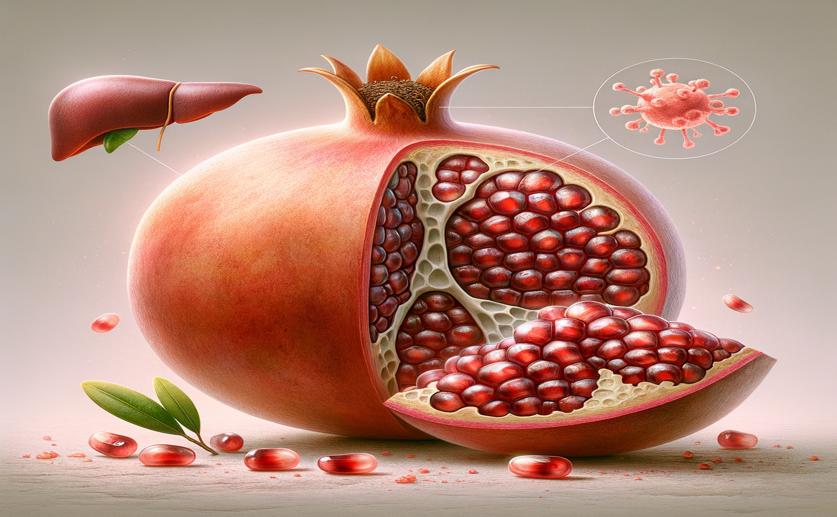
Pomegranate Helps Prevent Fatty Liver Disease and Cholesterol Issues
Jenn Hoskins
26th April, 2024

Image Source: Natural Science News, 2024
Key Findings
- A study in Spain found pomegranate supplements reduced fat and improved blood fats in rats on a high-fructose diet
- Pomegranate intake improved liver health by decreasing fat accumulation, a sign of non-alcoholic fatty liver disease
- The supplements altered gut bacteria, suggesting a role in countering fructose's harmful effects
References
Main Study
1) Pomegranate supplementation alleviates dyslipidemia and the onset of non-alcoholic fatty liver disease in Wistar rats by shifting microbiota and producing urolithin-like microbial metabolites.
Published 25th April, 2024
https://doi.org/10.1039/d4fo00688g
Related Studies
2) Molecular aspects of fructose metabolism and metabolic disease.
3) The Small Intestine Converts Dietary Fructose into Glucose and Organic Acids.
4) Glucose boosts protein oxidation/nitration during simulated gastric digestion of myofibrillar proteins by creating a severe pro-oxidative environment.
5) Dietary Polyphenols and In Vitro Intestinal Fructose Uptake and Transport: A Systematic Literature Review.



 16th January, 2024 | David Palenski
16th January, 2024 | David Palenski